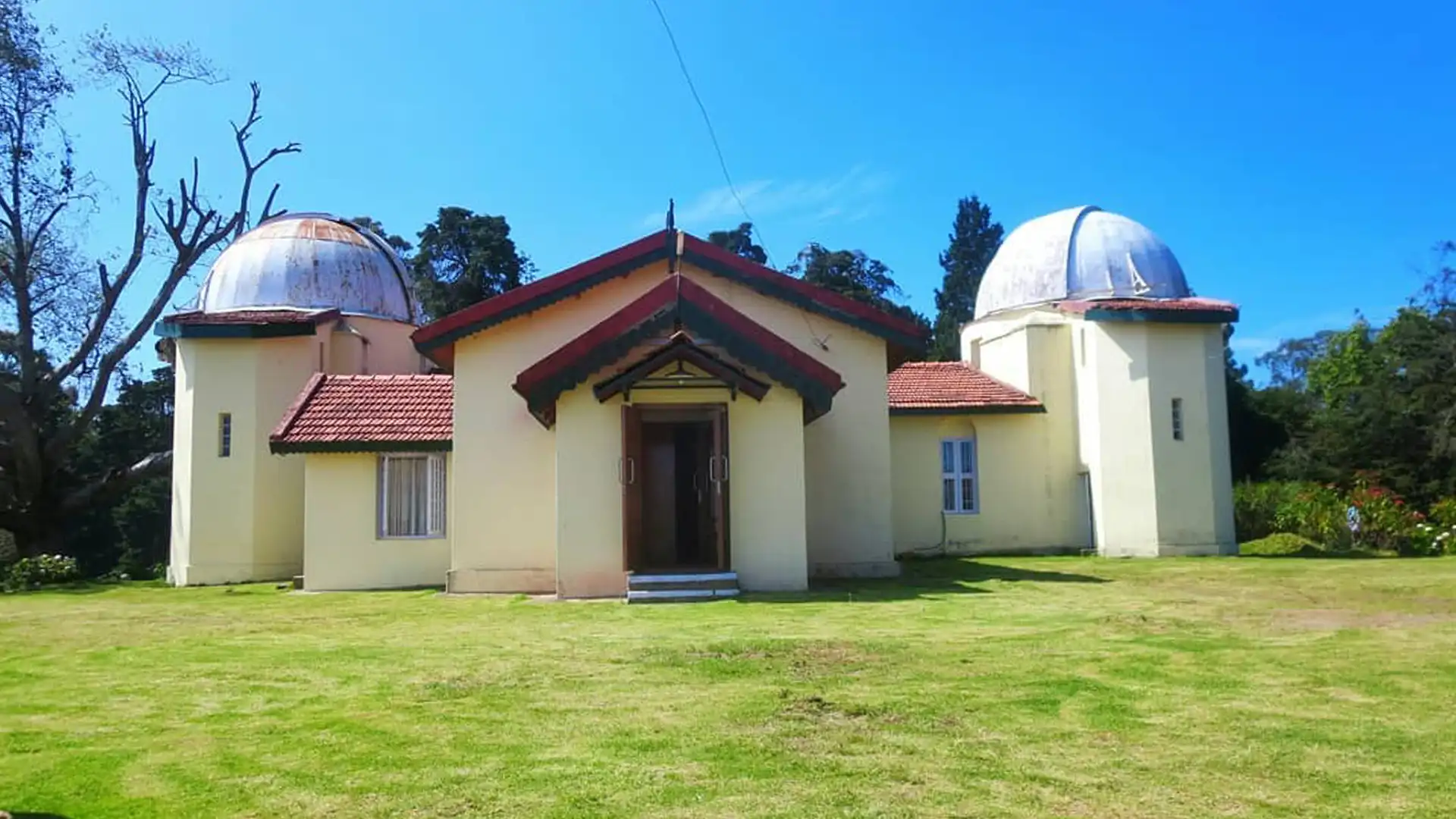
The story of the Kodaikanal Solar Observatory starts with a severe famine that affected the then Madras Presidency in the early 1890s. A solar observatory was decided to be set up in order to obtain more data on how the sun heats up Earth’s atmosphere and to understand monsoon patterns. Kodaikanal was chosen as the location for its proximity to the equator and its dust-free, high-altitude location. Thus began the history of the Kodaikanal Solar Observatory. Currently owned and operated by the Indian Institute of Astrophysics, the observatory has made some key discoveries instrumental in understanding the sun and its effects on the earth’s surface. The Evershed Effect was first discovered at this observatory in 1909. The observatory boasts the oldest continuous series of solar data collected in India.
This landmark institute in Indian astrophysics history stands tall on the southern tip of the Palani Hills. It is still functional with a team of two scientists and a team of technicians equipped with a broadband seismograph, a Watson magnetometer, a solar tunnel telescope and many other devices. It contributes data regarding the ionosphere, vertical drafts, and surface observations to the Indian Meteorological Department and the World Meteorological Organization.
This abode of science is open for public visits and has an elaborate museum on campus narrating the details of the countless discoveries made here. The museum has a live solar image and a Fraunhofer spectrum. The observatory has a 20 cm refractor that is occasionally used for cometary and occultation observations. It is also open to visitors for night sky gazing. The astronomy museum is open for all seven days, including government holidays, and night sky watching is open for visitors from 6:30 pm to 7:30 pm and is subject to viewing conditions. Head on to the Kodaikanal Solar Observatory Museum to marvel at the history and achievements of Indian astrophysics and peek into the jaw-dropping views of the cosmic void in the night sky.
Kodaikanal Bus Stand, about 4 km away
Madurai International Airport, about 137 km away
Palani Railway Station
Kodaikanal enjoys a cool and pleasant climate round the year. However, the best time to visit the hill station is from April to June when the weather is at its best.